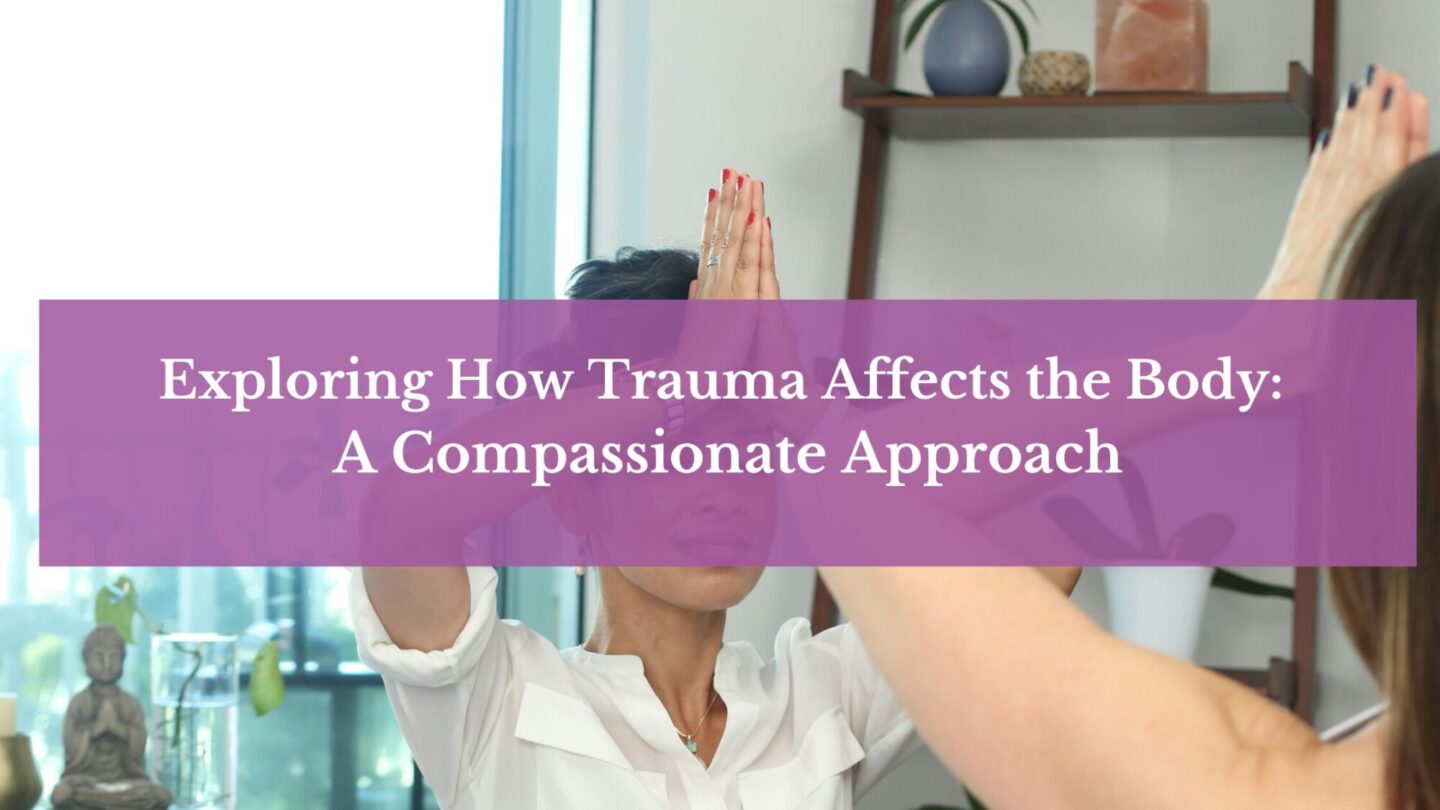Trauma is a deeply personal experience that can leave a lasting impact on both the mind and body. As therapists, we’ve had the privilege of working with many individuals who have courageously navigated the challenging terrain of trauma.
One of the most important things we’ve learned is that trauma doesn’t just affect us emotionally or mentally—it also has profound physiological manifestations. Understanding these physical responses is key to healing and self-compassion.
The Mind-Body Connection
It’s important to recognize that these physiological symptoms are not just “in your head.” They are real, tangible effects of trauma on the body. The mind and body are deeply interconnected, and trauma can create a loop where physical symptoms exacerbate emotional distress, and vice versa.
The Somatic Symptoms of Trauma
When we experience trauma, our bodies react in an entirely natural way. The “fight, flight, or freeze” response is our body’s way of protecting us from harm. This response is driven by the autonomic nervous system, which controls involuntary bodily functions like heart rate, digestion, and respiratory rate. In the face of danger, the body releases stress hormones like adrenaline and cortisol, preparing us to either confront the threat or escape from it.
For someone who has experienced trauma, these physiological responses can become chronic. The body might remain in a heightened state of alert, even when there is no immediate danger. This can lead to a range of physical symptoms. These include:
Increased Heart Rate: The body’s natural response to stress often results in a rapid heartbeat, which can leave a person feeling anxious or on edge.
Muscle Tension: Many people with trauma carry tension in their muscles, particularly in areas like the shoulders, neck, and jaw. This can lead to chronic pain or discomfort.
Digestive Issues: The gut is often referred to as the “second brain” because of its strong connection to the nervous system. Trauma can disrupt digestion, leading to issues like nausea, stomach pain, or irritable bowel syndrome (IBS).
Fatigue and Sleep Disturbances: The constant state of alertness that comes with trauma can make it difficult to relax or sleep. Many people experience insomnia or feel exhausted despite getting enough rest.
Compassionate Healing
Healing from trauma requires a holistic approach that addresses both the mind and body. A compassionate approach to treatment involves acknowledging the physical effects of trauma and incorporating body-based therapies into the healing process.
Somatic Therapy: Somatic therapy focuses on the connection between the body and mind. Techniques such as body awareness, breathwork, and gentle movement can help release stored tension and allow the body to process traumatic experiences.
Trauma-Informed Yoga: Yoga can be a powerful tool in trauma recovery. Trauma-informed yoga emphasizes safety, choice, and body awareness, helping individuals reconnect with their bodies in a gentle and empowering way.
Mindfulness and Meditation: Mindfulness practices can help bring the body into the present moment, reducing the impact of traumatic memories and promoting a sense of calm and safety.
Professional Support: Working with a therapist who specializes in trauma can provide the necessary support to navigate the healing process. A trauma-informed therapist will understand the deep connection between the mind and body and can guide you through appropriate therapies.
Moving Forward with Compassion
If you’re experiencing the physical effects of trauma, please know that you’re not alone. Many others share this journey, and there is support available to help you through it.
Healing from trauma isn’t about “getting over it” or “moving on.” It’s about understanding and honoring what you’ve been through and finding ways to live with it that nurture your well-being. Be kind to yourself as you navigate this path. Just as your mind needs time and care to heal, so does your body. Give yourself the grace and patience you deserve on this journey.
If you’re looking for compassionate, experienced therapists to guide you on your healing journey, Common Thread Counseling is here to help. We’re currently accepting new clients and are here to support you. Reach out today to schedule a consultation. Together, we’ll gently guide your journey toward a stronger, more resilient future.
Click here to schedule your consultation today.
